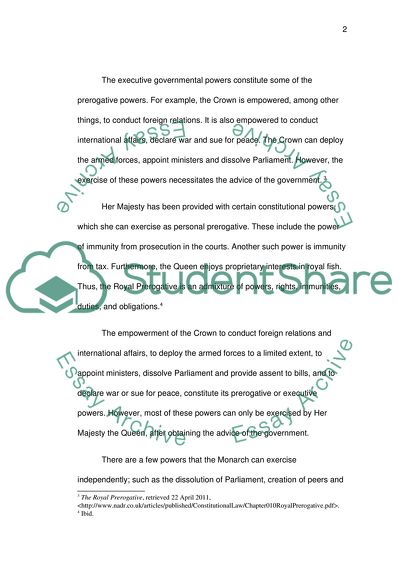Cite this document
(Whether Royal Prerogative Powers Are Unnecessary Essay - 1, n.d.)
Whether Royal Prerogative Powers Are Unnecessary Essay - 1. https://studentshare.org/politics/1750883-there-is-no-longer-a-need-for-prerogative-powers-today-they-should-all-be-in-statutory-form-discuss
Whether Royal Prerogative Powers Are Unnecessary Essay - 1. https://studentshare.org/politics/1750883-there-is-no-longer-a-need-for-prerogative-powers-today-they-should-all-be-in-statutory-form-discuss
(Whether Royal Prerogative Powers Are Unnecessary Essay - 1)
Whether Royal Prerogative Powers Are Unnecessary Essay - 1. https://studentshare.org/politics/1750883-there-is-no-longer-a-need-for-prerogative-powers-today-they-should-all-be-in-statutory-form-discuss.
Whether Royal Prerogative Powers Are Unnecessary Essay - 1. https://studentshare.org/politics/1750883-there-is-no-longer-a-need-for-prerogative-powers-today-they-should-all-be-in-statutory-form-discuss.
“Whether Royal Prerogative Powers Are Unnecessary Essay - 1”. https://studentshare.org/politics/1750883-there-is-no-longer-a-need-for-prerogative-powers-today-they-should-all-be-in-statutory-form-discuss.


